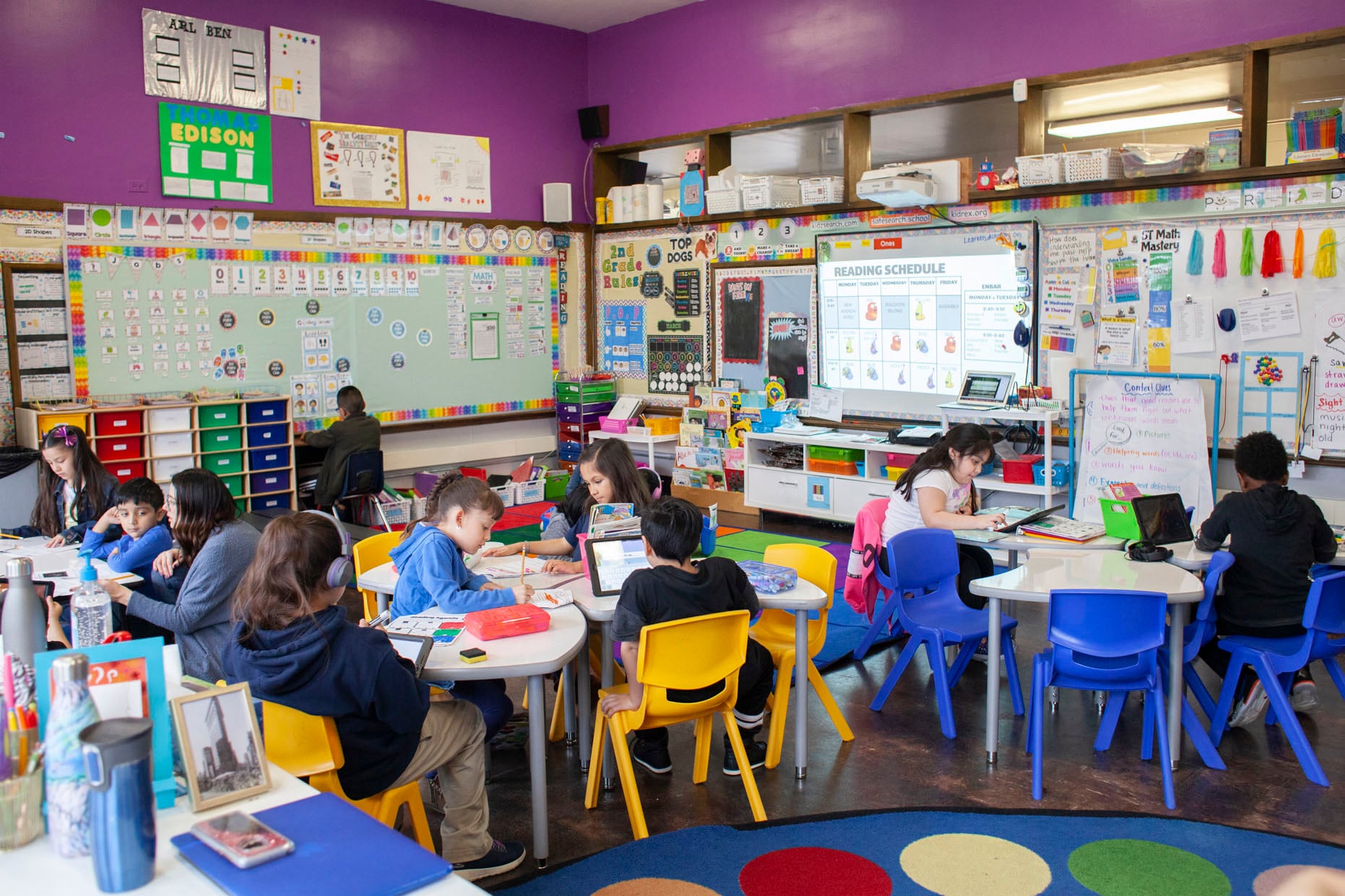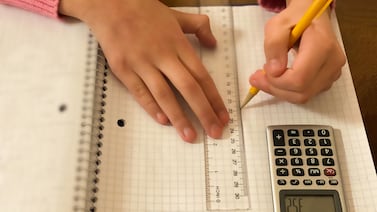Sign up for Chalkbeat Chicago’s free daily newsletter to keep up with the latest education news.
The budget for public schools in Illinois might see some belt-tightening, officials signaled at the Illinois State Board of Education’s meeting Wednesday.
That’s because local revenue projections are modest and federal COVID relief dollars are set to run out, state finance and budget officials told board members.
The Governor’s Office of Management and Budget has predicted the Illinois State Board of Education can expect to receive an additional $425 million in revenue next year.
With $350 million of that funding going toward the evidence-based funding formula, “that leaves very little meat on the bone left to appropriate to other areas,” said Matt Seaton, the state board’s chief financial officer. “As we think about our budget for the next several years, I think we’re going to be thinking in terms of a conservative budget.”
The state board will likely have less funding for items such as transportation, private school tuition for students with disabilities, and Illinois’ free breakfast and lunch program.
Officials said it is possible that Illinois Gov. J.B. Pritzker or the state legislature could allocate more than the board asks for, as happened this past year. The board asked for $510 million for fiscal year 2024, but received $601 million from the state.
The State Board of Education is expected to vote on a budget recommendation to send to the governor during its Jan. 24, 2024 meeting.
Many school districts will face a new financial reality during fiscal year 2025, which begins July 1, 2024 and ends June 30, 2025. Since the start of the pandemic, school districts across the district were flush with federal COVID-19 relief funds to help schools recover. Illinois received over $7 billion in funding. The largest pot of money that came under the Biden Administration’s American Rescue Plan is set to expire Sept. 30, 2024.
A data dashboard from the state board says districts have spent 74.5% of their emergency federal dollars as of Dec. 7, 2023. A majority of funding went to after-school programs to help students recover learning loss, tutoring, transportation, and existing staff. Out of the $7 billion, the state board kept $440 million for statewide recovery efforts including the Illinois Tutoring Initiative and professional development for educators. According to the dashboard, the state has only spent 66.5% of the money so far.
Illinois school districts are already bracing themselves for budget cuts. Chicago Public Schools, the state’s largest district, says it is expecting a $391 million budget shortfall next year.
The budget outlook isn’t an encouraging sign for education advocates, educators, and families who want to see more money going to schools. Those who testified at the state board’s budget hearings in October want to see an increase in funding in early childhood education, K-12 public schools, and social-emotional learning hubs among other issues, according to state officials on Wednesday.
Pritzker kept the education budget flat during the first year of the pandemic. Afterwards, Pritzker approved an increase of $350 million toward the evidence-based funding formula to support K-12 public schools — keeping the bipartisan promise made in 2017 when the formula was created. However, advocates have been pushing the state to increase funding by $550 million a year to fully fund schools by 2027.
Pritzker is pushing to expand early childhood education across the state during his second term. Most recently, he announced an effort to create a new agency that would bring together several departments that currently provide services for families with young children. Last year, he increased early childhood spending by $250 million, including a $75 million increase toward that state board’s early childhood block grant. Advocates hope the state will again increase funding by $75 million in next year’s budget.
In previous years, Pritzker has given his State of the State address and budget proposal in February before Illinois lawmakers go into the spring legislative session to negotiate what the final budget will be. It must be approved before the start of the next fiscal year on July 1.
Samantha Smylie is the state education reporter for Chalkbeat Chicago covering school districts across the state, legislation, special education and the state board of education. Contact Samantha at ssmylie@chalkbeat.org.





